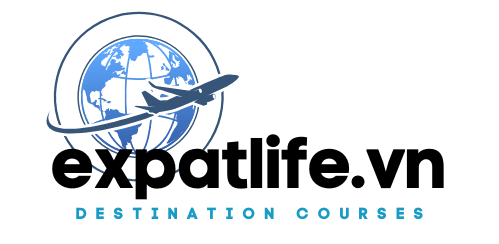Are you planning to move to the Philippines? Are you worried about the cultural adaptation challenges that expatriates often face in a new country? Do you want to explore the job opportunities and market demand in the Philippines, and understand the legal requirements for residency and work permits? Are you curious about the cost of living and how to find suitable housing in this beautiful archipelago?
Look no further! Our course, “Living and Working in the Philippines: A Comprehensive Guide,” is designed to address all your concerns and provide you with invaluable insights into making a successful transition.
In this course, we delve deep into the cultural adaptation challenges that expatriates encounter when moving to the Philippines. We explore strategies for overcoming language barriers, understanding local customs and traditions, and building meaningful connections with locals.
Furthermore, we provide an extensive analysis of job opportunities and market demand across various industries in the Philippines. You will gain a thorough understanding of key sectors experiencing growth, emerging trends, and valuable tips for securing employment or starting your own business.
Navigating through legal requirements can be daunting. That’s why our course includes a comprehensive overview of residency regulations, work permits, visa processes, and other legal considerations. We ensure that you have all the necessary information at your fingertips to ensure a smooth transition.
Understanding the cost of living is crucial for effective financial planning. We break down expenses such as accommodation, transportation, healthcare, education, utilities, and leisure activities so that you can make informed decisions regarding your budget.
Finding suitable housing is another critical aspect when relocating. Our course provides practical guidance on searching for rental properties or purchasing a home in different regions of the Philippines. From navigating real estate websites to negotiating rental agreements or mortgages – we’ve got you covered!
By enrolling in “Living and Working in the Philippines: A Comprehensive Guide,” you will equip yourself with essential knowledge needed for a seamless transition. Whether it’s adapting culturally, finding employment, understanding legal requirements, managing your finances, or securing suitable housing – this course is your ultimate resource.
Join us today and embark on a transformative journey to successfully live and work in the Philippines!
Course Outcomes
- Gain a deep understanding of the culture and customs of the Philippines, enabling you to navigate social situations with ease and confidence.
- Develop effective strategies for overcoming cultural barriers, allowing you to adapt quickly and seamlessly to your new environment.
- Explore the job market in the Philippines and identify in-demand industries and professions, giving you a competitive edge in your job search.
- Master the legal requirements for residency and work permits, ensuring a smooth transition and compliance with local regulations.
- Acquire valuable knowledge about the cost of living in different cities, enabling you to create a realistic budget and effectively plan your finances.
Requirements
- In order to successfully complete the "Moving to the Philippines" course, it is recommended that students have a basic understanding of cultural adaptation challenges, a familiarity with job markets and opportunities, knowledge of legal requirements for residency and work permits, an understanding of the cost of living in the Philippines, and knowledge about finding suitable housing options. While there are no specific course prerequisites, having a general awareness and prior knowledge in these areas will enhance the learning experience and enable students to better navigate the course content.
Features
- Cultural Insights: In-depth exploration of the country's customs, traditions, and etiquette.
- Practical Information: Detailed guidance on topics like housing, healthcare, education, transportation, and finance.
- Safety Tips: Information on crime rates, personal safety measures, and emergency procedures.
- Visa and Immigration: Clear explanations of visa requirements, application processes, and potential challenges.
- Job Market: Insights into the local job market, industries, and potential employment opportunities.
- Self-Paced Learning: Allows expats to learn at their own pace and schedule.
- Online Access: Accessible from anywhere with an internet connection.
- Modular Design: Breaks down information into manageable modules for easy learning.
- Quizzes and Assessments: Helps reinforce learning and measure understanding.
- Discussion Forums: Facilitates interaction with other expats and course instructors.
- Affordable Pricing: Offers value for the information and support provided.
Target audiences
- This course is designed for individuals who are planning to relocate or work in the Philippines. It is particularly beneficial for expatriates who are looking to understand and adapt to the cultural challenges they may face when entering a new culture. Professionals seeking job opportunities in the country will also find value in this course as it provides an overview of the job market, in-demand industries, and ways to find job opportunities in the Philippines. Additionally, individuals who want to familiarize themselves with the legal requirements for residency and work permits will benefit from the content covered in Module 3. The course also caters to those who want to gain an understanding of the cost of living in the Philippines, including budgeting and financial planning for expatriates. Lastly, individuals who are in the process of finding suitable housing in the country will find Module 5 particularly helpful as it covers different housing options, rental and buying procedures, and factors to consider when choosing suitable accommodation.
- The courses that we offer provide valuable information for individuals who are trying to decide where to live, what to expect from the local culture, and how to manage their finances.
- Expats: People who are planning to live and work in a foreign country.
- Students: Students who are interested in studying abroad.
- Retirees: People who are looking to retire in a different country.
- Digital Nomads: People who work remotely and can live anywhere in the world.
- Business Travelers: People who frequently travel for work.
- Investors: People who are considering investing in property or other assets in a foreign country.
